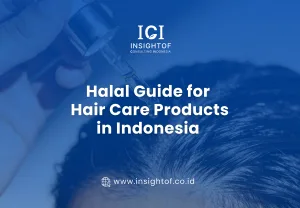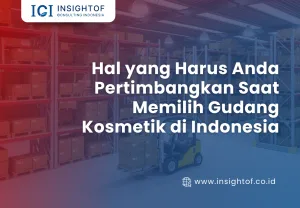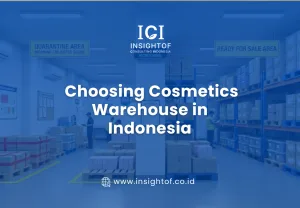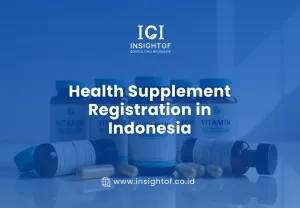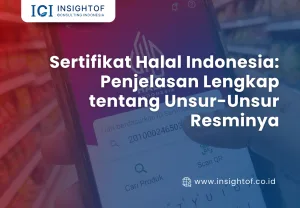1. Cotton Bud as a PKRT Product
Cotton buds (also known as cotton swabs) are everyday hygiene tools widely used for cleaning ears, applying or removing cosmetics, and medical or laboratory purposes. In Indonesia, they are officially classified as Household Health Supplies (Perbekalan Kesehatan Rumah Tangga / PKRT) under the Ministry of Health (Kemenkes RI).
According to Kemenkes Regulation, cotton buds fall into Class I (Low Risk) PKRT products — those that do not cause significant adverse effects such as irritation or toxicity. Although low-risk, they are still subject to regulatory registration and quality assurance before being distributed in Indonesia.
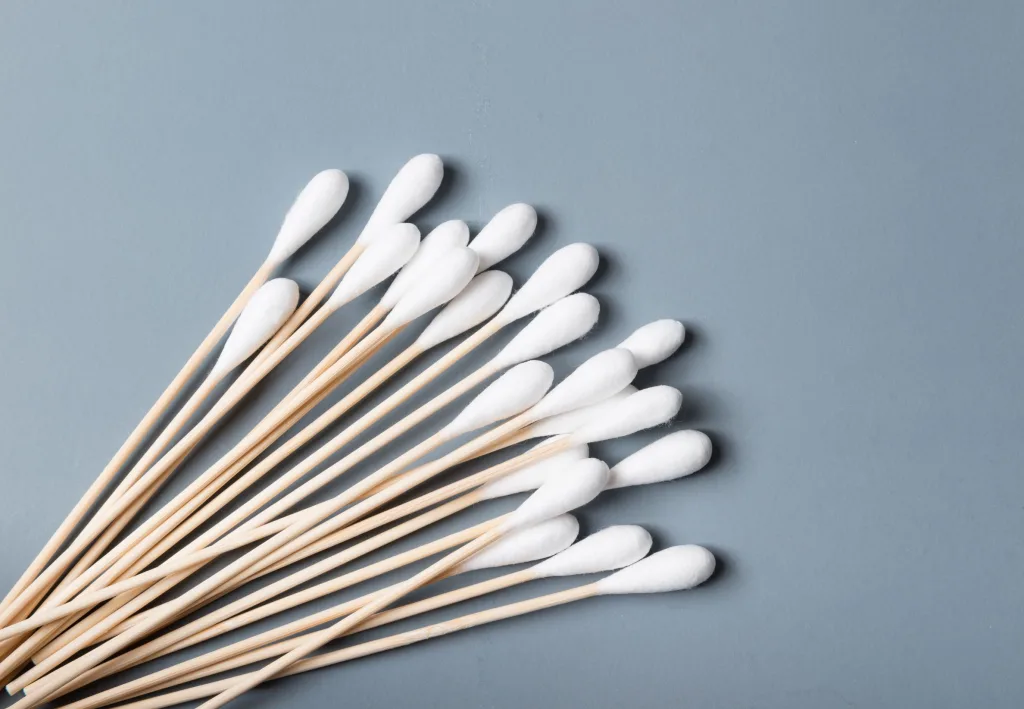
Cotton Bud
Category: Tissue and Cotton Products
Risk Class: Class I (Low Risk)
⚠️ Note: Depending on product materials and intended use (e.g., cosmetic vs. medical application), classification may vary between PKRT and medical device categories.
Common brands such as Pigeon, Unicharm, and Johnson’s Baby are widely available in supermarkets, pharmacies, and convenience stores across Indonesia.
2. Why Cotton Bud Must Be Registered
Even though cotton buds are considered low-risk products, they must still be registered with the Ministry of Health (Kemenkes RI) to obtain a PKRT Product Notification Number (Nomor Notifikasi PKRT).
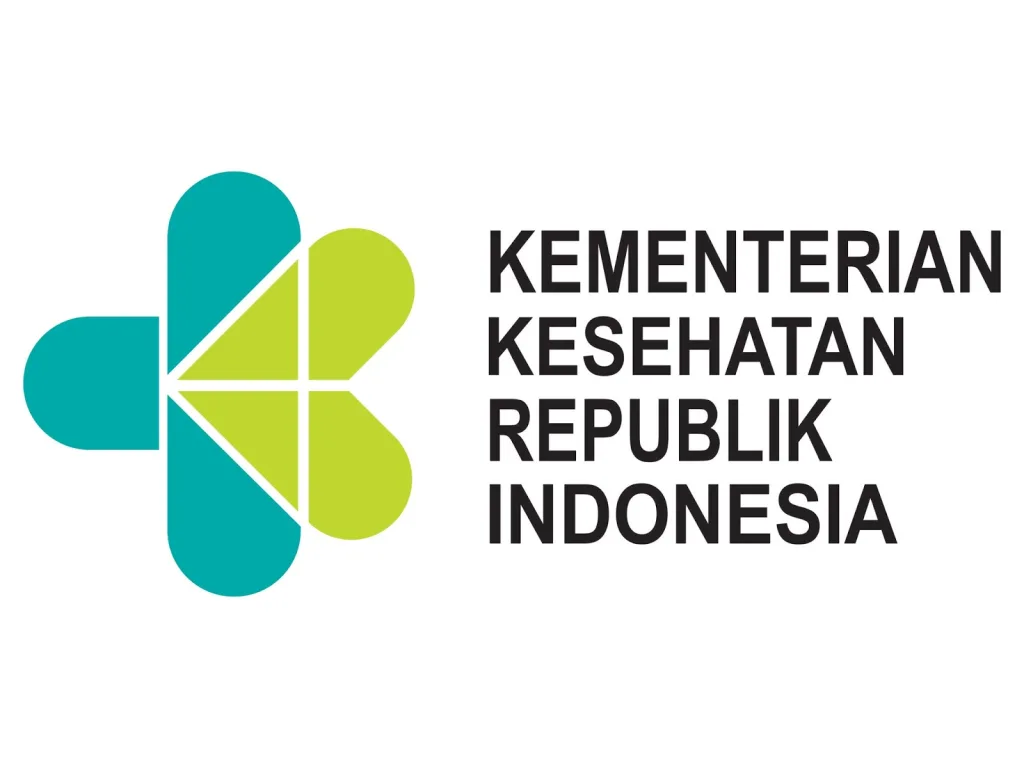
This registration ensures that every product distributed in Indonesia:
- Meets hygiene and safety standards set by Kemenkes RI.
- Uses materials that are safe for human use and do not cause irritation.
- Complies with labeling and packaging requirements.
- Is traceable to a legal manufacturer or importer registered in Indonesia.
Distributing unregistered PKRT products can result in administrative sanctions, withdrawal from the market, or import suspension.
3. PKRT Registration Process in Indonesia
Registration for PKRT products is conducted online through the Regalkes system (Registrasi Alat Kesehatan dan PKRT Online) managed by Kemenkes RI.
Key Registration Steps:
- Determine Product Classification
Identify the correct PKRT category and risk class (Cotton Bud = Class I PKRT). - Prepare Technical Documentation
Include product description, raw material composition, labeling sample, Certificate of Analysis (if applicable), and manufacturer license. - Submit via Regalkes Portal
Upload documents and pay the required non-tax state revenue (PNBP) fee. - Evaluation and Approval
The Ministry of Health reviews the submission and issues the PKRT Notification Number, which allows legal marketing and distribution in Indonesia.
4. Halal Certification Requirement for PKRT Products
Under Law No. 33 of 2014 on Halal Product Assurance and Government Regulation No. 39 of 2021, all PKRT products must obtain Halal Certification before being distributed, unless they are explicitly declared non-halal.
Cotton buds are required to be halal-certified because they may use materials derived from animal sources, such as adhesives, fibers, or surfactants used in the production process.
Halal Certification Deadline for PKRT Products:
🗓️ October 17, 2026 — All PKRT products (including cotton buds) must be halal-certified or labeled Non-Halal to continue being distributed in Indonesia.

5. Halal Certification Process for Cotton Buds
The Halal Product Assurance Agency (BPJPH), under the Ministry of Religious Affairs (Kemenag RI), is the authorized body for administering halal certification, working together with accredited Halal Inspection Bodies (LPH).
Process Overview:
- Material Verification
- Ensure cotton, adhesives, paper sticks, or plastic rods are derived from halal or plant-based materials.
- Avoid animal-derived fats, alcohol, or gelatin unless verified halal.
- Production Process Audit
- The LPH verifies that the production line is free from cross-contamination with non-halal materials.
- Cleaning and packaging processes must maintain halal integrity.
- Facility Inspection
- The manufacturer must implement the Halal Assurance System (SJPH) and maintain documentation of halal control points.
- Audit & Certification
- An on-site audit is conducted by an accredited LPH.
- Once approved, BPJPH issues the Halal Certificate, valid as long as there are no material or process changes.
- Renewal & Monitoring
- Halal certificates must be renewed before expiry and are subject to random verification by BPJPH.
6. Labeling Requirements for Cotton Buds
All PKRT products must comply with Minister of Health Regulation No. 62 of 2017 concerning labeling and advertising.
Required Label Information:
- Product Name
- Manufacturer and Distributor Details
- PKRT Notification Number (Nomor Notifikasi PKRT)
- Composition / Material
- Usage Instructions and Storage Conditions
Once halal-certified, the official BPJPH Halal Logo must be displayed clearly on the packaging. The logo’s size, color, and shape must not be altered.
Example:
Product Name: INSIGHT Cotton Bud
Manufacturer: ABC Hygiene Co., Ltd., Korea
Distributor: PT Insight Medika Indonesia, Jakarta
PKRT Notification No.: PKRT1234567890123
Halal Logo (if certificate already issued)
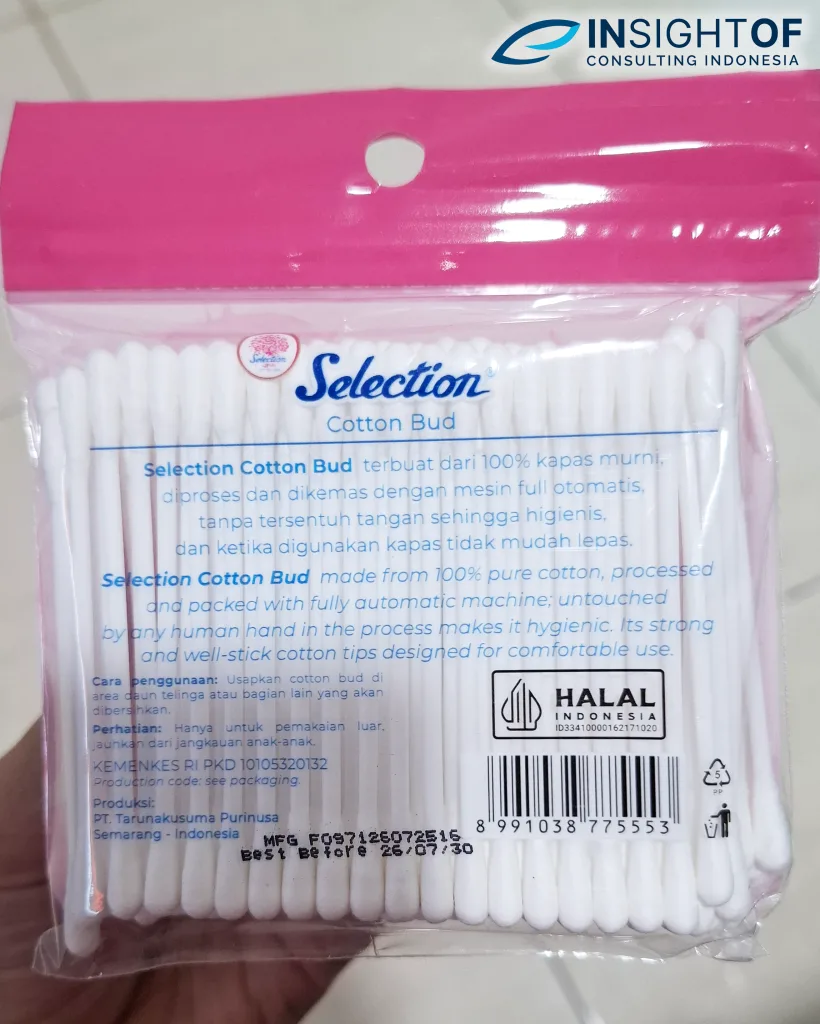
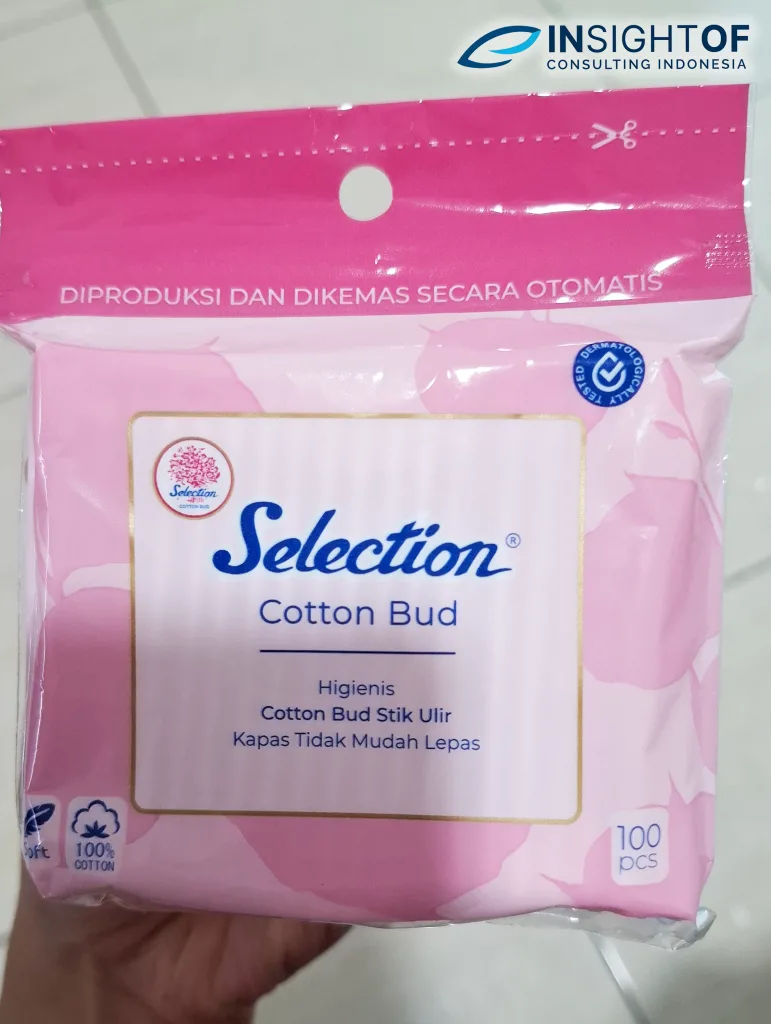
7. How INSIGHTOF Consulting Indonesia Can Help
INSIGHTOF Consulting Indonesia assists both local and international manufacturers in navigating Indonesia’s complex PKRT and halal certification requirements.
Our services include:
✅ PKRT product registration with Kemenkes RI
✅ Halal certification guidance with BPJPH & LPH coordination
✅ Document preparation, verification, and translation
✅ Label and packaging compliance review
With extensive experience supporting over 700 successful registrations, we ensure your cotton bud products are fully compliant and ready for the Indonesian market.
Conclusion
Starting October 17, 2026, all cotton buds and other PKRT products distributed in Indonesia must either:
✅ Obtain Halal Certification, or
⚠️ Clearly display a Non-Halal Label.
Understanding and complying with both PKRT registration and halal certification not only ensures legal market entry but also builds consumer trust in Indonesia’s rapidly growing hygiene and healthcare product sector.
👉 Need help registering your cotton bud products in Indonesia?
Contact INSIGHTOF Consulting Indonesia today — our regulatory experts are ready to guide you through every step.

Do you need assistance registering your product in Indonesia?
Contact us today to start your registration process.

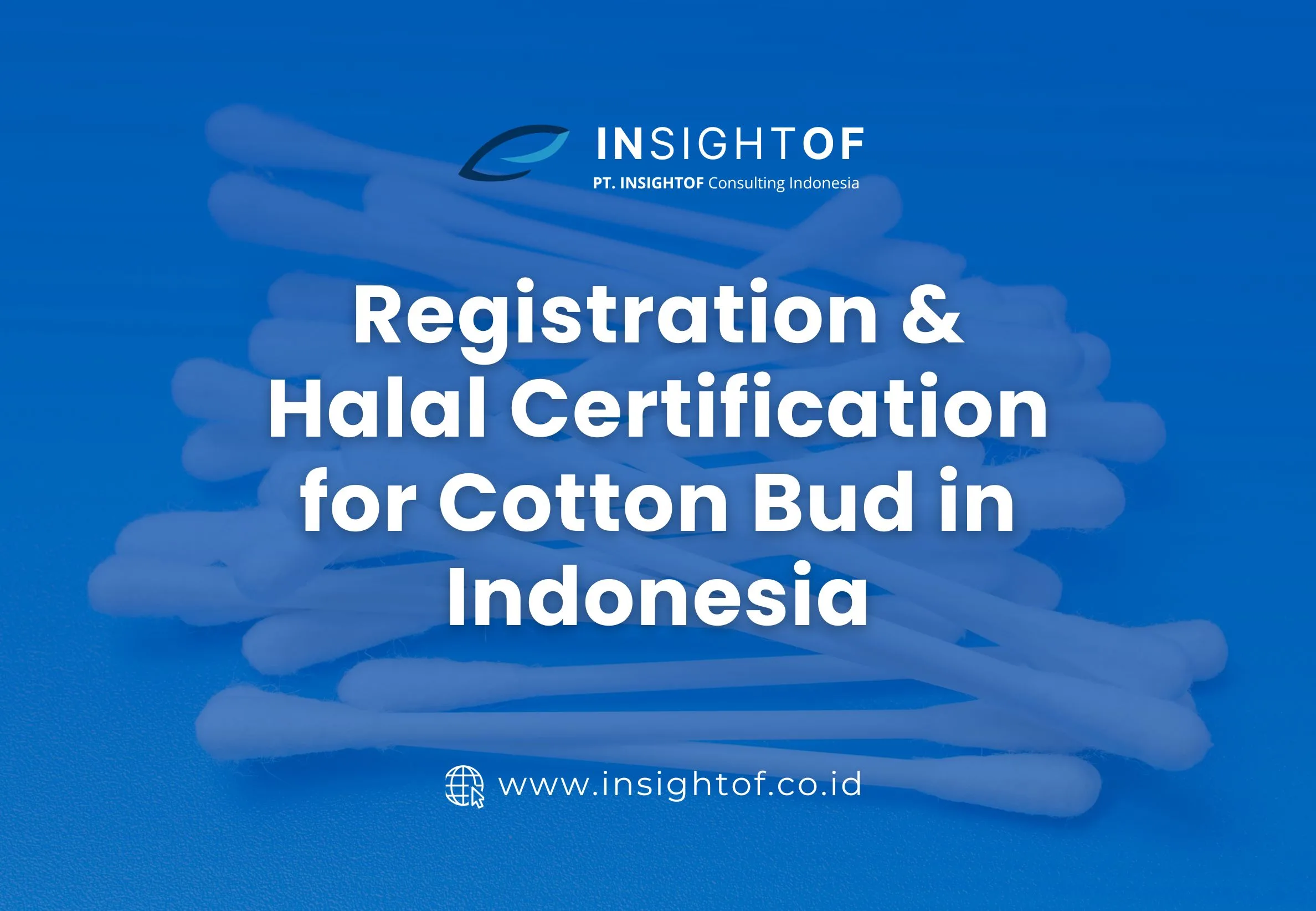

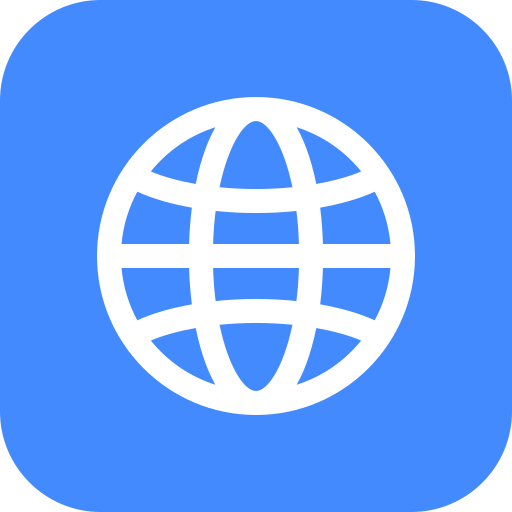
.svg/240px-YouTube_social_red_squircle_(2017).svg.png)
